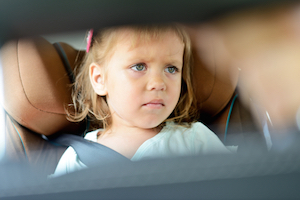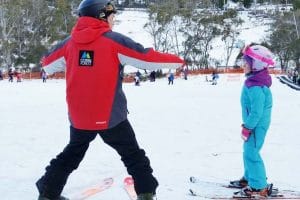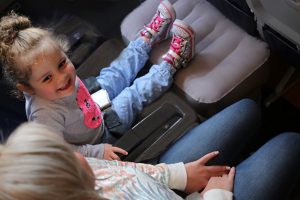
These are the dreaded words for any parent travelling with their children, particularly if heard at the beginning of a long flight or road trip. Nothing puts a dark cloud over family travel like motion sickness and having children feeling miserable.
What is motion sickness?
Simply put motion sickness occurs when there is a conflict between movement the eyes see and what the inner ear, which helps with balance, sense. These conflicting messages, when sent to the brain trigger the feelings of nausea. Once these signals have been sent to the brain while in motion, it can be difficult to regain control over the feelings until the motion stops.
Motion sickness in children occurs mainly during car, train and air travel, but can also occur on amusement park rides or when viewing video games.
Motion sickness is rare in toddlers and most commonly kicks in when children are pre-schoolers or school aged. It does tend to improve as children get older, taller and can see out of vehicle windows.
The common symptoms of motion sickness include sweating, stomach discomfort and nausea, dizziness in young children and if prolonged drowsiness. Stress centres in the brain are triggered with motion sickness so that sickness your child reports just thinking about a road trip may in fact be very real!
As motion sickness involves the gut scientists have reported that prevention techniques are better than cures for motion sickness.
Top Tips for Preventing Motion Sickness
- Dress your child in comfortable, loose clothing. Pack spares and wipes in case they do vomit.
- Encourage your child to focus their attention outside the window with games such as I Spy.
- Avoid reading or using screen devices. Instead listen to music with headphones.
- Reduce unnecessary head movement for your child by providing head rests or supportive pillows.
- Reassure your child and behave calmly and positively – anxiety worsens nausea.
- Discuss any medications you are considering giving your child for motion sickness with your family GP before administering them.
In the car
- While adults can sit in the front seat to alleviate motion sickness, this should not be used with children under the age of 12 and children should never be placed in front of an air bag.
- Encourage your child to relax and take a nap if possible.
- Schedule breaks to allow your child to stretch their legs and take in fresh air.
- Keep the temperature of the car on the cooler side. Stuffy car interiors make nausea worse.
- Pack snacks which are bland. Avoid sugary, greasy or citrus snacks.
- Discourage big meals and encourage your child to sip water and stay hydrated.
- Pack a tissue with a tiny drop of Peppermint oil on it. Have your child gently sniff the tissue which may help with nausea according to some naturopaths.
In the plane
- When booking your child’s seat try to book a window seat over the wings. These seats experience less vibration in the cabin.
- Encourage your child to remain seated. Walking around the cabin or frequent trips to the toilet will expose their body to greater movement and vibrations making them feel worse.
- Allow your child to recline their chair. The further reclined the better they will feel.
- Minimise during flight eating. Avoid plane food and if possible snack frequently on plain snacks.
- Distraction and relaxation can both minimise symptoms. Choose music or give your child a gentle hand massage to keep their thoughts away from feeling unwell.
Motion sickness is common in young children but these simple and effective steps can minimise your child feeling miserable and have the whole family enjoying the holiday sooner!
Michelle is a travel loving, bike riding mum to two who loves to blog over at Gee You’re Brave about living life and parenting with an adventurous spirit. Michelle has a Masters in Special Education, currently works at an Art Teacher for children with an intellectual disability and is passionate about helping children express themselves and reach their full potential.
Michelle would love to connect with you Facebook or Instagram.













